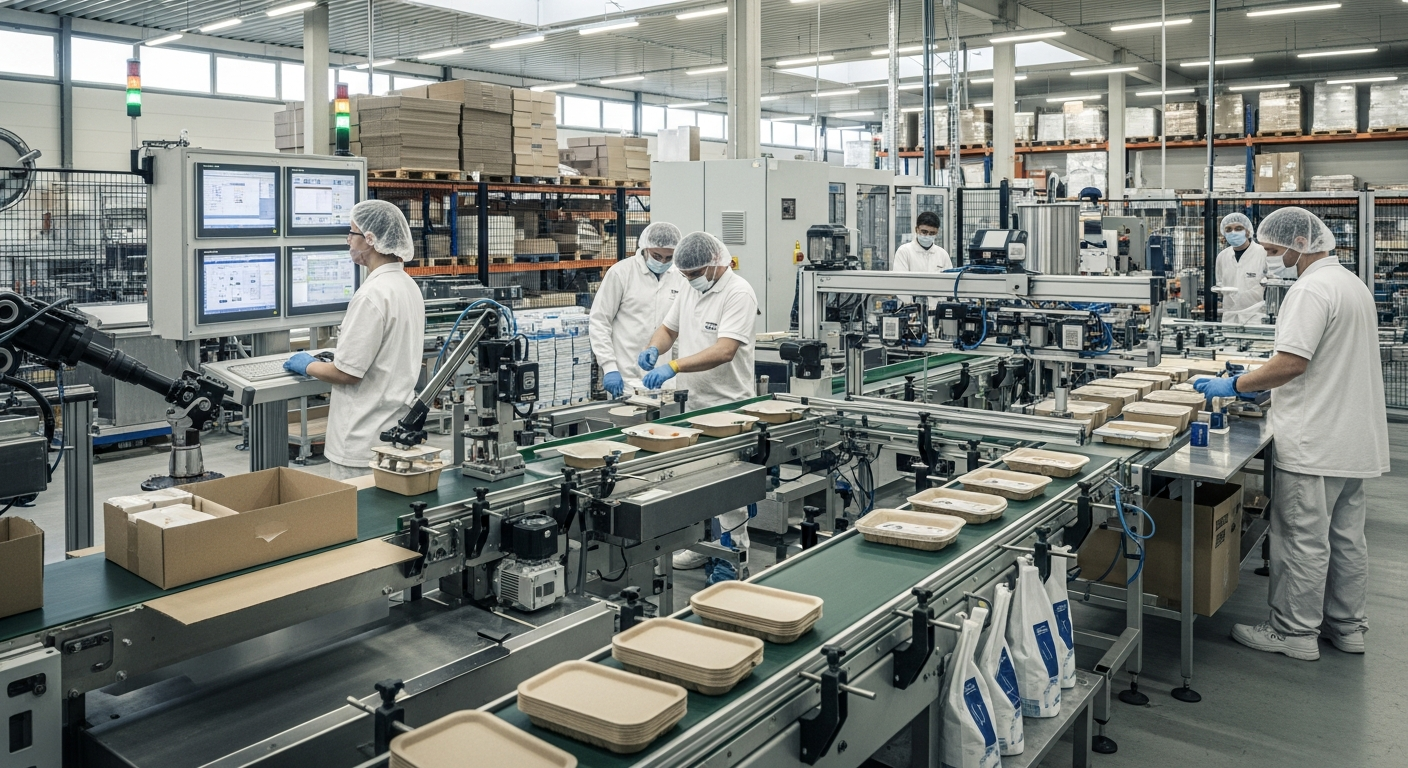Discover Warehouse Jobs in France, Explore Working Conditions
Individuals residing in France and proficient in English may find opportunities in warehouse jobs, which offer unique insights into the working environment. This exploration involves understanding the conditions prevalent in warehouses, including the significance of selecting an appropriate approach, as well as the various warehouse racking and packaging storage systems used across different countries.

Understanding Warehouse Environments and Working Conditions in France
Warehouse environments in France vary considerably depending on the facility’s purpose, size, and technological advancement level. Traditional warehouses may involve primarily manual labor with workers performing picking, packing, and loading tasks. In contrast, modern logistics centers often feature semi-automated or fully automated systems with employees operating specialized equipment. Working conditions are regulated by France’s Labor Code (Code du Travail), which establishes minimum standards for workplace safety, working hours, and rest periods. The standard workweek in France consists of 35 hours, though warehouse operations may include shift work, including evenings and weekends, particularly in facilities supporting e-commerce or time-sensitive deliveries.
Temperature conditions can vary dramatically, from climate-controlled environments for sensitive goods to non-temperature-regulated spaces that may be quite cold in winter or hot in summer. Physical demands typically include standing for extended periods, lifting items of varying weights, and repetitive movements. French regulations require employers to implement safety measures including ergonomic training, provision of appropriate lifting equipment, and personal protective equipment to mitigate these physical challenges.
Key Aspects of Warehouse Employment Selection in France
When considering warehouse employment in France, several factors merit careful consideration. First, employment contracts in France take different forms, including short-term (CDD - Contrat à Durée Déterminée), permanent contracts (CDI - Contrat à Durée Indéterminée), and temporary agency work (intérim). Each contract type offers different levels of job security and benefits. The French warehouse sector frequently utilizes temporary contracts, particularly during seasonal peaks such as holiday periods.
The minimum wage (SMIC) serves as the baseline compensation, with warehouse workers typically earning between this minimum and approximately 15% above, depending on experience, responsibilities, and location. Many warehouse positions in urban centers or high-demand areas like Paris, Lyon, or Marseille may offer higher compensation than similar roles in rural regions.
Language requirements present another important consideration. While day-to-day operations are conducted in French, international logistics companies may value multilingual skills, particularly English. Individuals residing in France and proficient in English may find opportunities with international shipping and logistics companies operating French distribution centers.
Warehouse Storage and Operations Overview
French warehouse operations incorporate various methodologies and technologies depending on the facility’s purpose and modernization level. Traditional warehouse management systems involving paper-based tracking have largely given way to digital inventory management systems, barcode scanning, and RFID technology. Some advanced facilities employ robotics and automated storage and retrieval systems (AS/RS).
The operational approach typically follows either the “goods-to-person” model, where automated systems bring products to stationary workers, or the “person-to-goods” model, where employees navigate the warehouse to locate items. Safety standards are strictly enforced within French warehouse operations, with mandatory safety training, regular equipment inspections, and adherence to national and EU regulations regarding handling hazardous materials or operating heavy machinery.
Career Advancement Opportunities in French Warehousing
The warehouse sector offers distinct advancement pathways for those seeking long-term career development. Entry-level positions such as order pickers or material handlers can progress to specialized roles including forklift operators, which require certification (CACES - Certificat d’Aptitude à la Conduite En Sécurité). Further advancement may lead to team leader positions, shift supervisors, and eventually warehouse management roles.
French vocational training programs provide additional qualification opportunities, including certificates in logistics and supply chain management. Many larger logistics companies offer internal training programs and career development support. The logistics sector’s continuous evolution, particularly with increasing automation and digitalization, creates demand for workers with technical skills in operating and maintaining modern warehouse equipment and software systems.
Regional Variations in French Warehouse Employment
Warehouse employment opportunities in France show distinctive regional patterns. Major logistics hubs have developed around Paris (particularly near Charles de Gaulle Airport), Lyon, Marseille, and Lille—the latter benefiting from proximity to European distribution networks. Northern France, with its connections to the UK, Belgium, and the Netherlands, hosts numerous distribution centers serving multiple European markets.
The Paris region (Île-de-France) contains the highest concentration of logistics facilities, while emerging logistics corridors along major transportation routes continue to develop. Regional economic development initiatives often target logistics as a growth sector, sometimes offering employment incentives or training programs specific to warehouse operations.
Regulatory Framework and Employee Rights
Warehouse employees in France benefit from comprehensive labor protections under the French Labor Code. These include restrictions on working hours, mandatory rest periods, and paid leave starting at five weeks annually. Health and safety regulations specifically addressing warehouse environments include requirements for proper ventilation, noise control, ergonomic workstations, and regular safety inspections.
Employee representation through works councils and trade unions is common in larger facilities. These bodies negotiate collective agreements that may provide additional benefits beyond the legal minimum. The inspection du travail (labor inspectorate) enforces compliance with labor regulations, investigating workplace accidents and responding to employee complaints regarding working conditions or safety violations.
Workers should understand that while temporary agency work offers flexibility, it provides fewer protections than permanent contracts. However, after certain periods of temporary employment with the same company, French law may require conversion to permanent status, reflecting the country’s emphasis on employment security and worker protection.




